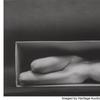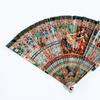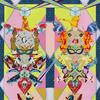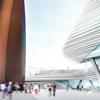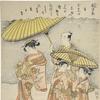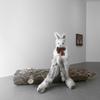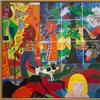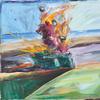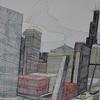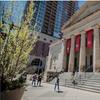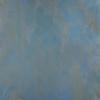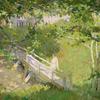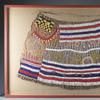UMMA EXHIBITION OF NEW WORK BY CATIE NEWELL EXPLORES DETROIT AT NIGHT
- ANN ARBOR, Michigan
- /
- June 16, 2016
An exhibition of recent photography by Detroit-based architect and artist Catie Newell is on view at the University of Michigan Museum of Art (UMMA) through November 6, 2016. Organized by UMMA and curated by Director Joseph Rosa, Catie Newell: Overnight features 18 recent photographs from Nightly, her series of nighttime images of Detroit streetscapes, alongside a site-specific installation.
“I’ve always been interested in darkness and the night. Colors look different,” Newell said. “Things have a different hierarchy, based on what’s lit and what’s not.” Darkness, shadows, and ambient and residual light give an environment what Newell calls its double life. A daytime landscape may be seen and known—familiar, predictable, trustworthy—but at night it succumbs to a darkness that, in her words, removes its walls, alters its spaces, and haunts, becoming risky, even dangerous, and ultimately alien.
After decades of neglecting its blighted neighborhoods, Detroit began to install LED in 2014, as part of a $185 million infrastructure project. Before all the lights came back on, Newell set out to document night in neighborhoods around East Grant Boulevard and the Grand Belt. As it varies in strength, form, and duration, light in Nightly constructs the architecture it depicts as a situational experience rather than a fixed space.
“The scenes are hard to discern, and the photographs, printed with a metallic sheen that seems to shift coloration as one moves around them, recreate for the viewer the experience of unreliable illumination,” said UMMA Director Joseph Rosa.
A highlight of the presentation is the site-specific installation, Overnight, commissioned by UMMA for this occasion. The installation draws upon Newell’s architecture background and, created with copper, aluminum, and steel wiring and LEDs, references the composition of streetlights. It explores the ways that these materials react to and manipulate light through reflections and shadows, transparency and opacity, clarity and obstruction, generating a constantly shifting experience in the gallery itself, as natural and artificial light comes and goes.
About the artist
Catie Newell is the founding principal of the art and architecture practice *Alibi Studio and Assistant Professor of Architecture at the University of Michigan. She has a Masters of Architecture from Rice University and a Bachelor of Science from Georgia Tech. Newell is a licensed architect. In 2006, she won the SOM Prize for Architecture, Design, and Urban Design with her project Weather Permitting. Before joining the University of Michigan as the Oberdick Fellow in 2009, Newell was a project designer at Office dA in Boston. Newell won the 2011 ArtPrize Best Use of Urban Space Juried Award and the 2011 Architectural League Prize for Young Architects and Designers. She recently exhibited at the 2012 Architecture Venice Biennale and the 2015 Lille3000 Triennial. She won the 2013-14 Cynthia Hazen Polsky and Leon Polsky Rome Prize in Architecture, and she is a Fellow of the American Academy in Rome.
University of Michigan Museum of Art
One of the leading university art museums in the country, UMMA was established in 1856, moved to its current location in 1910, and added the Frankel Family Wing in 2009. The Museum’s collection—African; American; Asian; European; Middle Eastern; modern and contemporary; and prints, drawings, and photography—is of exceptional breadth, comprising more than 21,000 objects that span cultures, eras, and media. Works from Whistler and Picasso to Nevelson and Gates, Chinese and Japanese paintings and ceramics, and sculpture from central Africa are among the finest in North America. Special exhibitions, gallery installations, innovative interpretive strategies, and programming showcase UMMA’s collections. The Museum—among the oldest university art museums in the nation—serves as the catalyst for cultural understanding at the University of Michigan and the Ann Arbor community, and is a physical and virtual destination for scholars and art-lovers from around the globe. Admission is free. www.umma.umich.org

